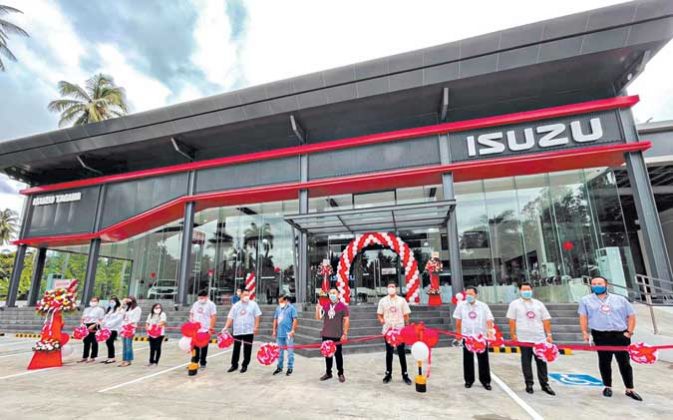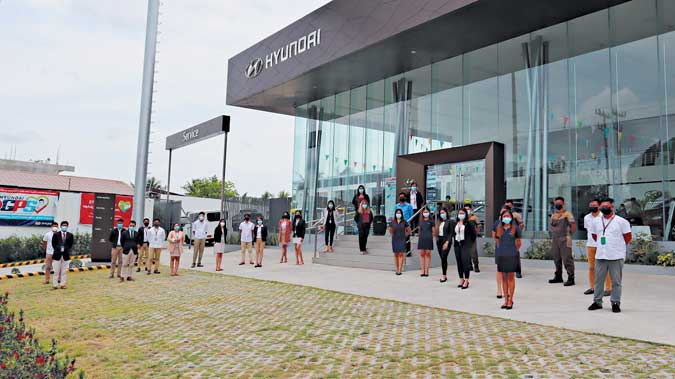Coronavirus not a death sentence for Philippines illegal wildlife trade

By Angelica Y. Yang, Reporter
FULLSCALE Reptiles and Exotics got at least two-dozen inquiries from prospective buyers at the height of the coronavirus pandemic in August after posting an ad for a Brazilian rainbow boa — the snake’s trademark iridescent and holographic sheen clearly seen on the photo — on its Facebook page.
The reptile pet store, which sells tame boa constrictors, green iguanas and Sulcata tortoises, among other animals, says it’s a “trusted and legal source of exotic animals” and has more than 100,000 followers on the social media platform.
Conservation experts have said the coronavirus that emerged in late 2019 is a zoonotic disease — it likely came from wildlife — highlighting the devastating impact wildlife trade can have on human health and economies.
 BusinessWorld tried to reach out to the store owner, who did not immediately reply to questions.
BusinessWorld tried to reach out to the store owner, who did not immediately reply to questions.
“Our early assessment shows that wildlife trafficking has continued, especially within national jurisdictions, despite restrictions in movements within and between countries in Southeast Asia during pandemic lockdowns,” said Elizabeth John, a spokesperson for Traffic, a wildlife trade monitoring network.
“The pandemic and its reported links to wildlife trade seem to have done little to dissuade traffickers,” she said in an e-mail.
Other zoonotic diseases include severe acute respiratory syndrome, Ebola, bird flu, and Middle East respiratory syndrome coronavirus.
“Its exact origins are still unknown, but COVID-19 is suspected to have originated in bats and may have jumped to humans via an intermediary wild species in a China wildlife market,” said the World Wildlife Fund.
The Asian Development Bank estimates the value of the illegal wildlife trade globally at $10 billion to $23 billion a year, making wildlife crime the fourth-most lucrative illegal business after narcotics, human trafficking, and arms.
“The Philippines is a consumer, source, and transit point for illegal wildlife trade, threatening endemic species populations, economic development, and biodiversity,” it said in a 2019 report.
ONLINE SHIFT
The value of illegal wildlife trade in the Philippines is about P50 billion a year ($1 billion), which includes the market value of wildlife and its resources, their ecological role and value, the cost of habitat damage during poaching and loss in potential ecotourism revenue.
Philippine authorities seized about P5.44 million worth of wild animals from both local and international trade last year, 92% less than a year earlier, as the Environment department’s Biodiversity Management Bureau sent out fewer workers during the pandemic.
“There were fewer people to enforce the law last year,” Emerson Y. Sy, a wildlife researcher for more than 20 years, said by telephone. “When you go online, you can see that the illegal trade of wildlife hasn’t abated.”
More than 300 Philippine wildlife trade groups had been created on Facebook since President Rodrigo R. Duterte locked down the entire Luzon island in mid-March last year to contain a coronavirus pandemic, Mr. Sy said.
Many of these groups had been taken down by the social media platform in the past weeks, he added.
Mr. Sy said travel restrictions during the global health crisis have forced poachers to limit their trade to Luzon-based bird species.
Before the pandemic, the Palawan Hill Myna and blue-naped parrot — both on the International Union for Conservation of Nature’s “red list” of threatened species — were highly traded.
Rogelio D. Demellentes, Jr., who has worked with a Philippine task force against the illegal trade of ivory and wild animals, said traffickers continued with their illegal activities through Facebook.
The 47-year-old wildlife law enforcer and his team at the Environment department continued to track and apprehend animal traffickers during the crisis, at the risk of getting infected with the coronavirus.
“When we catch them, we don’t know if they’re infected with COVID-19,” he said by telephone.
Theresa Mundita S. Lim, executive director at the ASEAN Centre for Biodiversity, said travel restrictions could spell both “good and bad news for the country’s wildlife.”
“Movements of poachers and other would-be violators have been restricted leading to a decrease in illegal activities, such as poaching and illegal harvesting, and collection of wildlife and forest products,” she said in an e-mailed reply to questions.
FEWER PATROLS
“Communities have also reported increased sightings of wildlife that are usually disturbed during peak tourism season.”
But the lockdown had also meant a decline in state patrols and enforcement, Ms. Lim said. Joblessness during the health crisis “might also drive people to revert to these illegal activities such as fishing in marine sanctuaries, or hunting and poaching,” she added.
Ms. Lim said the pandemic had spurred countries including the Philippines into action. Mr. Duterte had called for a halt in wildlife crimes to prevent the spread of diseases.
“Illegal wildlife trade poses huge risks not just to the country’s natural assets, which include wildlife species, but also to public health, as we have seen in the COVID-19 pandemic,” she said. The practice has also led to dwindling biodiversity.
Curbing illegal wildlife trafficking requires a whole-of-society approach, Ms. Lim said, citing the need for coordination between countries and sectors.
The business sector can help halt wildlife crimes by ensuring that the raw materials they use for manufacturing are “sustainably, legitimately and equitably sourced.”
Ms. John said the Philippines has had “some notable success in enforcing its wildlife law and a multi-agency task force focused on ivory smuggling and wildlife trade,” but much needs to be done.
“There are areas for improvement such as closing loopholes in its national wildlife law and stricter management of captive breeding facilities to prevent these from being used as a cover to launder wild-caught animals into legal trade,” she said.
She also cited a thriving exotic pet trade and a bustling wildlife trade online, where a significant proportion involves illegal trade.
The Philippine tourism sector will benefit if the country took greater care of its wildlife, Mr. Sy said.
“If Philippine wildlife species are protected and conserved, they can be used as attractions for tourists,” he said.
“If we don’t protect our wildlife species, we might not be able to see them again,” Mr. Demellentes said.




















